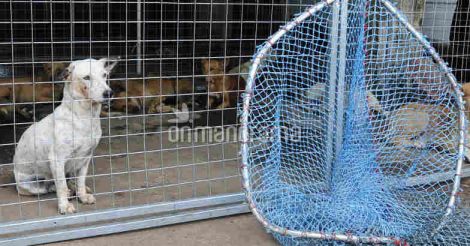The debate is renewed every time a stray dog attack is reported. A large section of society wants the government to cull the dogs as they see man’s safety as paramount. Animal rights activists beg to differ.
The voices in favour of stray dogs were challenged in a case pending before the Supreme Court. The petitioners wondered if the animal rights activists were actually favouring the pharmaceutical companies which make medicines for dog bites. Why were the activists silent about the 230 crore animals butchered for food across the country every year, they asked.
There are only 1.71 crore stray dogs in India, less than a percent of the 230.67 crore animals butchered every year, according to rough government estimates. Indian laws do not allow the culling of stray dogs. As a result, the state governments incur huge losses stocking up drugs for dog bites and paying for the victims or their survivors.
Rs 300 crore for medicine
Taluk-level government hospitals across India are forced to stock up anti-rabies vaccine given the constant threat from stray dogs. There is no unified data on the expenses incurred on it as each state is faced with its own peculiar conditions. Kerala spends about Rs 10 crore per year on anti-rabies vaccine.
While India spends Rs 300 crore a year on the vaccine, 90 percent of the vaccine thus stocked is destroyed after the expiry date every year. The governments cannot help it because of the alarming increase in stray dog attacks.
In 2012, there were 1,65,30,000 stray dog attacks reported across the country, shows data from the Animal Welfare Board of India. As many as 20,000 people died of rabies that year.
The monetary loss due to stray dog attacks rises manifold when you add the individual losses and job losses suffered by the victims of stray dogs as well as the solatium the government pays to the relatives of those who died in the attacks. The total loss may run up to Rs 1,800 crore.
If a stray dog bites a cow, its owner can get it vaccinated for free at a government veterinary hospital. Still the dairy farmer incurs a loss of thousands of rupees by way of transporting the cow to the hospital for five consecutive days for vaccination. A goods vehicle might charge him up to Rs 600 for a single trip.
Even if the doctor decides to do him a favour by visiting the farm, he will have to pay for the auto rickshaw ride. What’s more, the farmer will have to abandon all other works on these days, hitting his farm’s productivity. The bitten cow’s milk cannot be sold until the vaccination is completed.
Vaccinating stray dogs is deemed an endless pit. The country will have to spend a bomb to vaccinate the 1.7 dogs in the streets. Kerala is estimated to have 2,68,994 stray dogs, or 30 stray dogs per square kilometre. Even if a dog is vaccinated, its bite victim will still have to be vaccinated.
ABC Act
Local self-government bodies in Kerala stopped culling stray dogs after the Animal Birth Control Act 2001 was passed. The act prescribes sterilising stray dogs rather than culling them.
The act has been challenged in the Supreme Court by Sabu Stephen, president of SL Foundation in Thiruvananthapuram, who alleges that the piece of legislation violated humans’ right to travel. The concept of animal birth control restricts the Constitutional right to move freely, the petitioner says.
Even if birth control is implemented, it hampers the right to move freely. The act was also creating hurdles for the local self-government bodies which were duty-bound to protect the local population. The act violates 58 laws in total, the petition says.
It also levels a far more serious charge that the act is a façade to facilitate the trials of anti-rabies vaccines in India.
The fact that the ABC Act is also cruel to other animals seems to be lost on the animal rights activists. The act contradicts the section 11(3) of the Prevention of Cruelty to Animals Act, 1960. Cows, goats and many other animals are attacked by stray dogs almost every day.
License to pet
The delay in making a decision on the culling of stray dogs should not hold up the licensing of pet dogs any more. The Kerala government has submitted a proposal to the central government on this but a decision is yet to be made on implementing it.
The abandoning of pet dogs at the slightest sign of illness has become rampant in the state. Since there is no licensing system for pet dogs in India, there is no official data on the number of pet dogs. Unofficial data puts the figure at 1,16,72,617. Almost 10 percent of them could eventually land up in the streets given the haphazard practices in India.
Dropping the pets by the wayside is unheard of in the developing countries where a licensing system tracks the owner and the pet.


























Disclaimer
The comments posted here/below/in the given space are not on behalf of Manorama. The person posting the comment will be in sole ownership of its responsibility. According to the central government's IT rules, obscene or offensive statement made against a person, religion, community or nation is a punishable offense, and legal action would be taken against people who indulge in such activities.